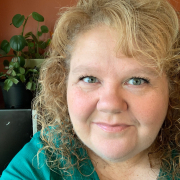Make the Most of Your Break
One thing I hear consistently from folks across campus is how much they value the winter break. For many, it feels like an oasis in a busy season—extra days off, a pause between semesters, a time of reset and (hopefully) renewal. However, many of us also tend to have high expectations of ourselves during this time—catch up on sleep/rest, travel, get projects done, host guests and meet holiday demands.
Over my years at UK, I’ve noticed not all of my breaks have met my hopes and expectations. Some years, I hit the mark and feel I made the most of my available time. Other years, I’ve sat on the eve of our return to work and wondered where the time went, feeling like I had squandered an opportunity.
In working with clients—and in my personal experience—I’ve found some strategies that can help make our time off more satisfying and fulfilling.
Be intentional
First, consider what demands you are facing right now and what you need during this break. Are you feeling fatigued and overwhelmed? Are you excited about upcoming activities? Are there things you want to accomplish? Is there someone specific you want to spend time with?
Try making a list of your top 3-5 priorities. You may find many things you’d like to do (or not do) during this time, so it can help to give thought and planning to your days. Depending on your personal style, you may add things to your calendar or keep a list on the fridge or in your phone. Plans don’t need to be a minute-by-minute agenda, but identifying 1-2 things you want to focus on each day can be helpful. And remember to include space for rest and downtime—these often fall off the radar or get squeezed out when other obligations arise.
Practice the pause
This time of year, it can feel like your “default mode” is to hurry and hustle all over the place. As demands and stress increase, it helps to slow down and practice the pause. Pause before agreeing to plans—is this really how I want to spend my time, money or energy? Pause before stepping into the next task—take an extra minute to catch your breath, listen to a song or take a walk. Pause to take in what is around you—slow down and savor your coffee, spend extra time with your pet or appreciate your holiday decorations. Pause and be present with those in your life—savor conversations, add extra snuggles at bedtime or reach out to those you miss. The pause can help us stay intentional and keep us present to what and who we truly value.
Communicate
Talk to those in your close circle about what you are prioritizing and want to do during your days off. This may include coordinating plans, but it may also involve setting limits or saying no to things that aren’t a priority. Clear communication can help establish realistic expectations and develop a manageable plan that works for everyone.
You can learn more about the work-life and well-being support offered by UK Human Resources here.
